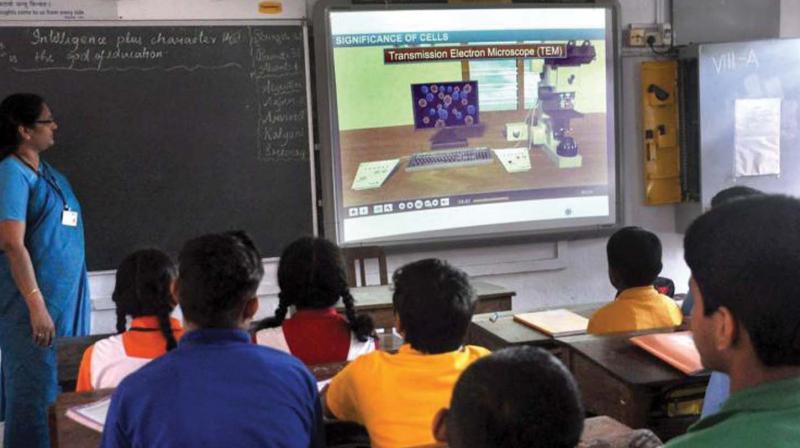Thiruvananthapuram: Tackling reduced attention span
Teens spend more time online with many addicted to the internet, reducing their attention span.

Thiruvananthapuram: The attention span of people is shrinking in the digital age, as per a survey conducted by Microsoft in 2015. Teens spend more time online and many are addicted to the internet, which has reduced their attention span.
China recently experimented with headbands to track students’ attention. However, such experiments may not suit a country like ours. This is a form of surveillance and an infringement on the children’s personal freedom.
There is a debate on the attention span of students in the state too. Deccan Chronicle takes a look at the methods employed by teachers to check students’ attention span, how successful they are in doing it and what techniques they employ to engage students.
Psychologist Aravind Thampi told Deccan Chronicle that the children are introduced to gadgets like mobile phones and computers right from an early age. The children who are exposed to mobile games or WhatsApp want all things to be fast. However, parents can help by engaging them in reading or discussions by spending time together.
Such screen-free times without phones, tablets, computers and other screens is needed for them to take a break from the constant exposure to the fast world, said Mr Thampi.
Mr Sujeev Jose, English teacher of Government Higher Secondary School, Neduveli, said the government decision a few academic years ago to reduce the time of periods from 40 minutes to 35 was keeping in view the shorter attention span of children. The number of periods was increased from seven to eight though teachers feared that this would reduce the time to complete the portions. However, this proved to be very effective. The teachers would engage students in real class room teaching for 20 to 25 minutes only. The first and last ten minutes can be effectively used for discussions on the topic. Teachers should also help children engage in self-learning, said Mr Jose.
The concept of smart class rooms was also ideal for retaining the attention span of children. Students are more receptive while teaching using gadgets like LCD and laptop, said Mr Jose.
Fr Mathew George Kuroor, Principal, Sarvodaya Vidyalaya, said that students lose their concentration if the classes are not engaging. The way out was to make classes more engaging and interesting. For example, while teaching science subjects, the teachers can keep the class live by dividing the class into two or three parts.
The first part would be teaching the topic to be covered. In the second part, the teacher can try a small experiment in the class. The third part can be based on the explanation of the experiment.
Classes can be made visually enriching. The new tools like smart classes are more useful than conventional lectures, said Fr Kuroor.

